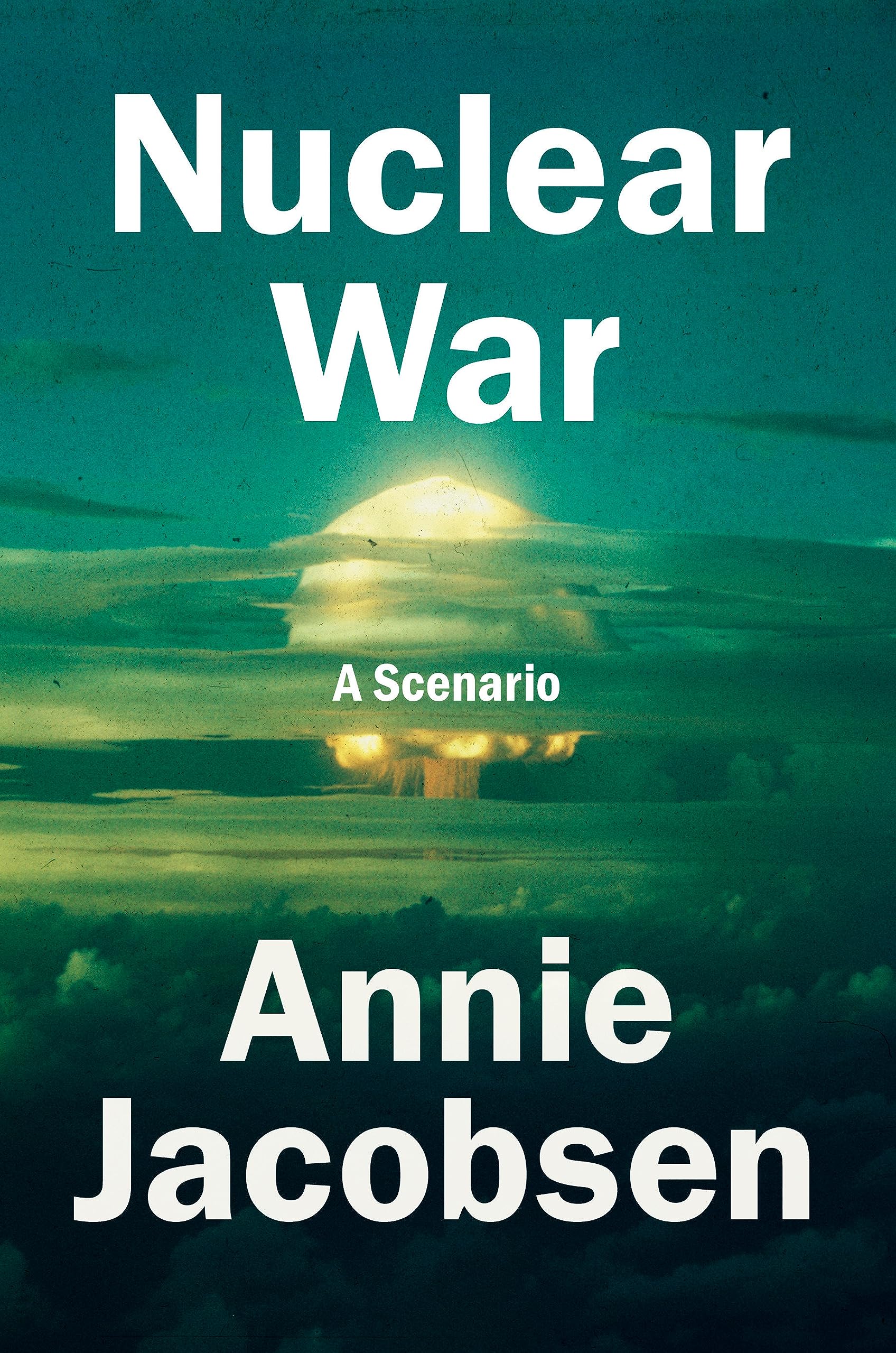
Nuclear War: A Scenario
Annie Jacobsen
About the Author

Annie Jacobsen
Questions & Answers
The concept of deterrence, as a cornerstone of nuclear policy, fails to prevent nuclear war due to its inherent unpredictability and reliance on the rational behavior of leaders. It assumes that nuclear-armed nations will not use their weapons unless forced to, but this is based on the belief that leaders are rational and that deterrence is a credible threat. However, deterrence can fail due to miscommunication, miscalculations, or the actions of irrational leaders. Consequences of failed deterrence include massive loss of life, widespread destruction, and the potential for a global nuclear exchange leading to a nuclear winter, which would severely impact the environment, climate, and human survival. The resulting chaos and loss of infrastructure would make recovery nearly impossible, threatening the very existence of human civilization.
The technical and strategic challenges in detecting and intercepting nuclear missiles are significant and multifaceted. Technically, the speed and altitude of the missiles, along with their ability to release decoys, make detection and tracking difficult. The interceptor missiles must distinguish between the warhead and decoys, which is a complex task. Additionally, the interceptor's speed and accuracy are crucial for successful interception, but historical test data show a low success rate.
Strategically, the effectiveness of nuclear defense systems is impacted by the "use them or lose them" strategy, which requires launching all available nuclear weapons before they are destroyed in an incoming attack. This strategy increases the risk of unintended escalation. Furthermore, the reliance on a single interceptor system, like the Ground-based Midcourse Defense (GMD), limits the defense's effectiveness. The complexity of the intercept sequence, involving multiple steps and multiple organizations, also increases the likelihood of errors or delays. These challenges collectively reduce the reliability and effectiveness of nuclear defense systems.
The "Launch on Warning" policy, which allows the U.S. to launch nuclear weapons upon early warning of an attack, significantly increases the likelihood of nuclear escalation. This policy necessitates a rapid response, often without full information or time for deliberation, leading to potentially hasty decisions. The six-minute deadline for the president to decide on a nuclear counterattack is particularly risky, as it can result in overreaction or miscalculation. Additionally, the policy's reliance on the U.S. nuclear triad, particularly submarine-launched missiles, means that the president has limited time to respond, as these missiles can strike almost simultaneously. This urgency can lead to a rapid and potentially uncontrollable cycle of nuclear exchanges, escalating the crisis and raising the risk of a full-scale nuclear war.
A nuclear war would have catastrophic humanitarian and environmental consequences. The "Devil's Scenario" involves a nuclear strike on a nuclear power plant, leading to a core meltdown and massive release of radiation. This would cause immediate death and long-term contamination, rendering large areas uninhabitable. The resulting nuclear winter would lead to severe climate changes, including reduced sunlight, extreme cold, and widespread famine. Radiation would cause acute and chronic health issues, including cancer and genetic damage, leading to a significant reduction in human population. The food chain would collapse due to radiation and climate change, further impacting human survival. The long-term survival of humanity would be severely compromised, potentially leading to a return to a pre-agricultural state.
The book argues that the current nuclear strategy and international relations are fundamentally flawed and dangerous, emphasizing the catastrophic consequences of nuclear war. It highlights the "Launch on Warning" policy, which risks accidental or unauthorized launches, and the "Hair-Trigger Alert," maintaining a majority of nuclear weapons on ready-for-launch status. The book also criticizes the lack of progress in eliminating these policies despite repeated warnings from experts. It underscores the irrationality of nuclear weapons use and the devastating effects of nuclear winter, which could lead to mass extinction. The book calls for a fundamental reevaluation of nuclear strategy and international relations, emphasizing the need for disarmament, de-alerting nuclear weapons, and fostering trust and cooperation among nations to prevent nuclear war.